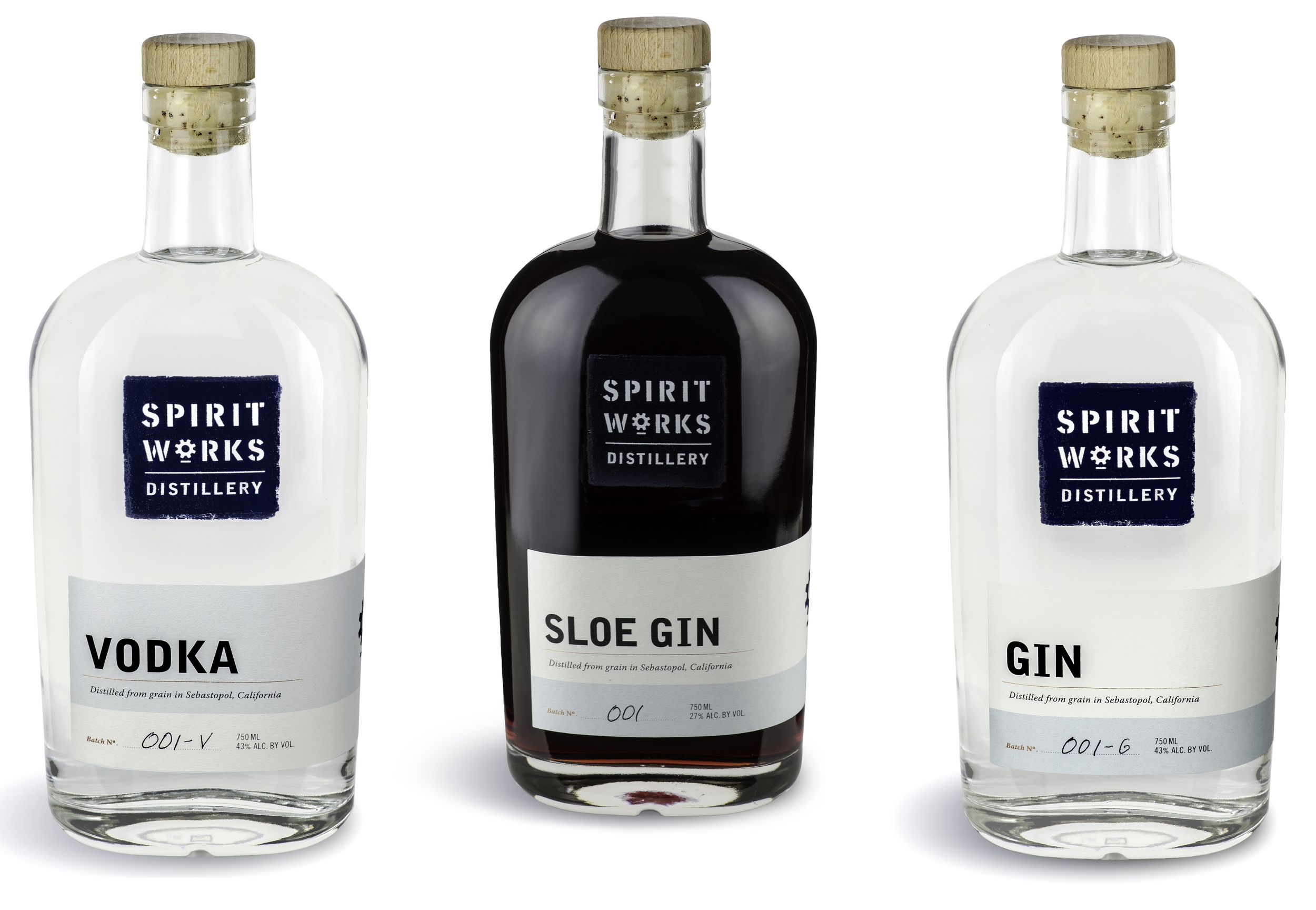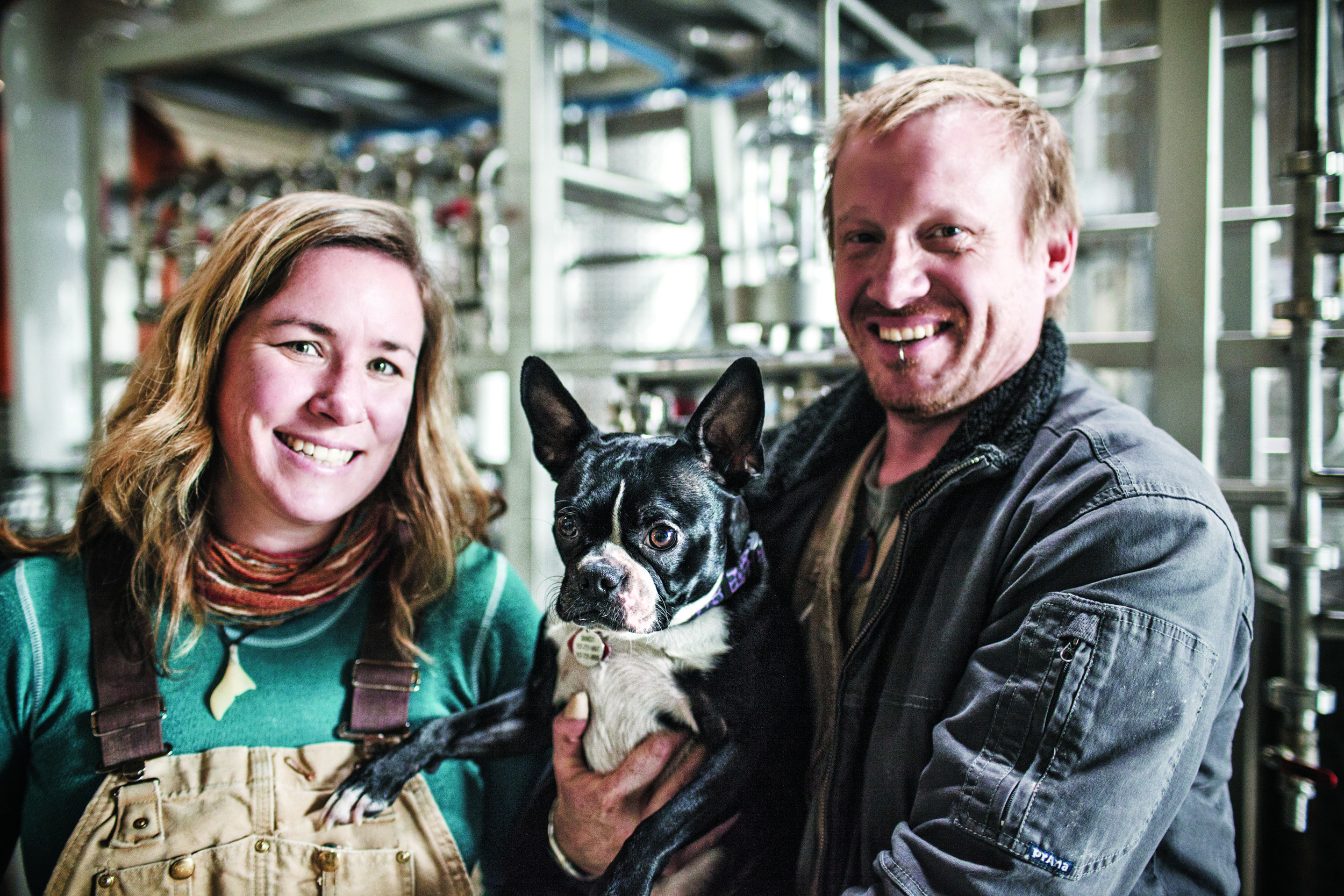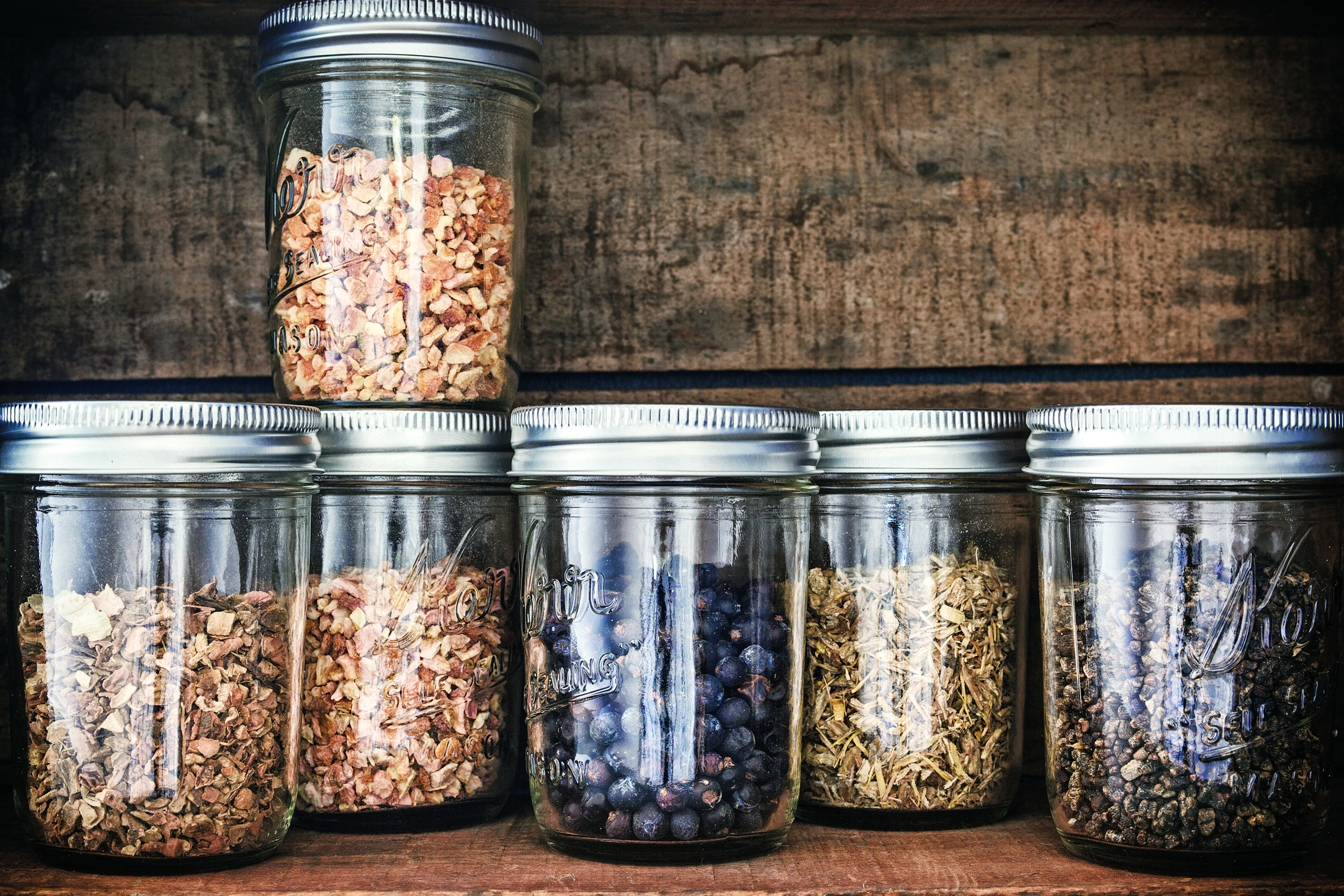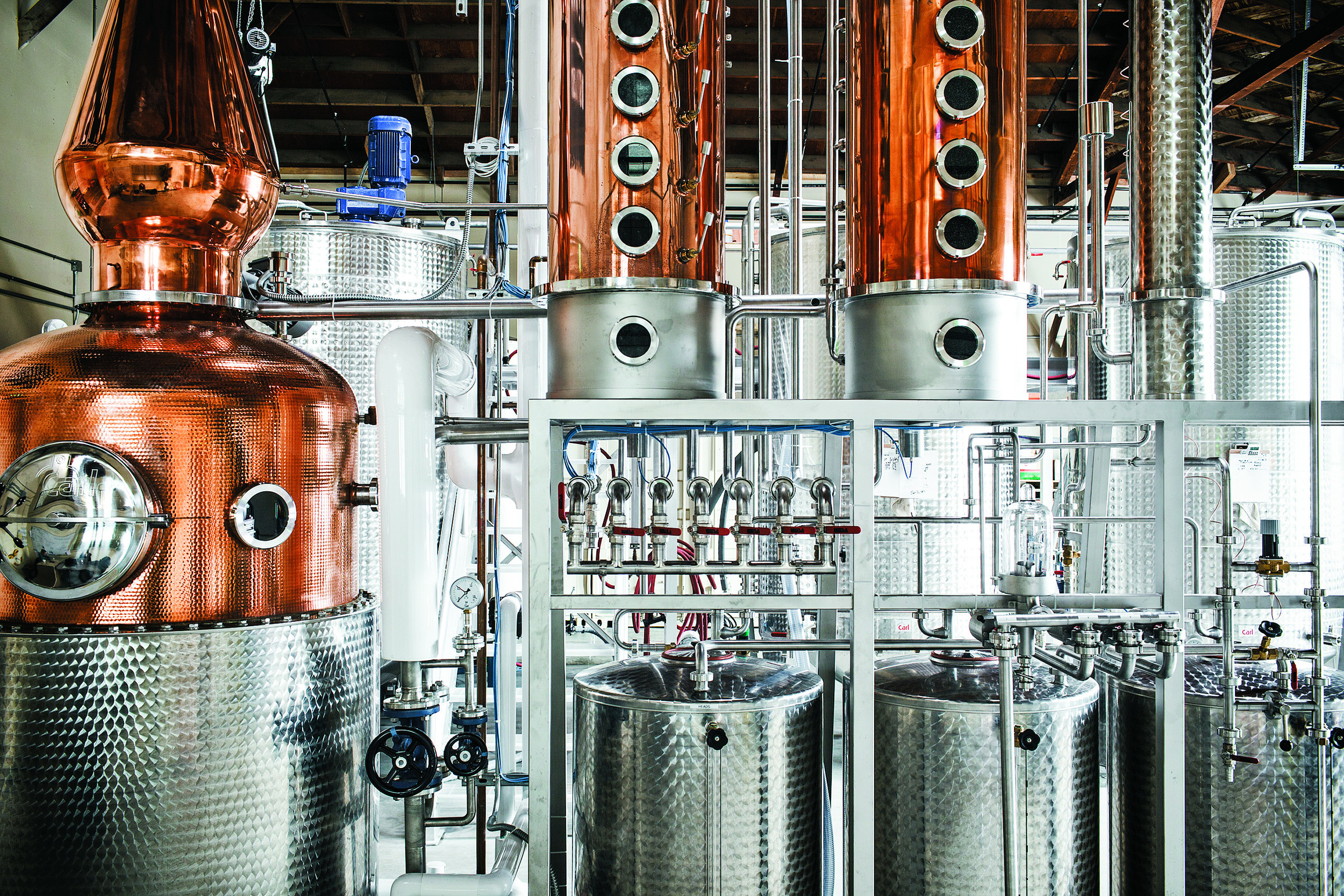Touring and Tasting Spirit Works Distillery
Not long ago I drove up to Sebastopol to check out Spirit Works Distillery. The drive up from San Francisco was nice, especially along highway 116 which took me right into the heart of town. Spirit Works is in a newly developed business district called The Barlow that brings together local art, food and beverage producers. Spirit Works is in the same building as a coffee roaster and there are a couple of small breweries and wineries in the neighboring buildings. This made it really convenient to check out some great businesses I toured the distillery.
Spirit Works was founded by the husband and wife team, Timo and Ashby Marshall. Ashby is the head distiller and Timo takes care of many of the other logistics involved in running a distillery. The day I visited Ashby was striping a wheat wash, that would be distilled a second time and eventually become a wheat whiskey. Meanwhile, Timo was proofing their latest batch of gin and checking on their fermentation efficiency. If you don't know what any of that means, it's ok, take one of their tours because they do a really good job of explaining how they transform raw grain into spirits.
On the tour, Timo told us that the inspiration for the distillery came, in part, from his desire to recreate the sloe gin that he grew up making and drinking with his family back in England. But to make Timo's dream of creating a world class sloe gin a reality they worked the concept backwards. To make sloe gin they needed gin and sloe berries. Sloe berries, I learned, are a smaller and more tart relative of the plum. Sloe berries they could buy but they would need a distillery to make the gin. Gin is made from a neutral spirit (vodka) that is infused with juniper and other botanicals. To make their own base vodka they would need a hybrid still that is part pot still and part column still.
One of the things that I like about Spirit Works is the clarity of their vision and how well the distillery is designed to meet that vision. Ashby and Timo wanted to create a grain to glass distillery so they found a source where they could buy organic California-grown hard red winter wheat. The wheat comes to them in 1 ton totes so their masher, fermentors, and still are all scaled to process 1 ton at a time. There is a great efficiency and elegance to this that other would be distillers should take note of. I've visited a number of distilleries that create extra work and hassle for themselves just because some part of their production process wasn't scaled properly.
Before my visit to Spirit Works my only reason for keeping vodka at home was for making vanilla extract or tinctures. 99% of all vodka is made by huge industrial distilleries than then sell it in bulk to other companies. Since multiple spirit companies are buying from the same source, the only way they can differentiate themselves is to talk about how many times they filtered or redistilled the spirit to make it taste more neutral (like nothing). For this reason I've avoided vodka as a beverage because I like the things I drink to have flavor, and not just flavors from juices or syrups.
However, the vodka from Spirit Works is completely different. They are one of a handful of distilleries that actually produce their own neutral spirit, which the law requires be distilled to or above 190 proof or 95% abv. Here again the genius of Spirit Works shines through. When they designed their still, they built it so that they could reach the 95% mark in one pass. What this means is, their vodka contains residual aromas and flavors from the wheat. In my mind, this actually makes it interesting to drink and unlike any other vodka, in a market that aims for less flavor.
Now to how their spirits taste.
As I said, their vodka is completely unique and in my opinion is a thing of beauty. The first aroma isn't the oh so familiar sting of ethanol but a pleasant nose of caramelized sugar and cream. In the mouth it is full and velvety, it taste fruity, like cantaloupe and papaya, but balanced with earthy notes of wheat. It has a long finish that goes down smooth with a creates a nice warming sensation in the chest with zero burn.
Their gin is made with some of the botanicals in the still and some in a gin basket which allows the vapors to pass through and extract aromas and flavors. Spirit Work's gin is nice and very well balanced. Many classic gins tend to be more juniper forward while many contemporary gins tend to have their floral or citrus components more up front. Instead their gin has, juniper, has citrus, has floral and earthy spices but none of them is more powerful than the other. All of these flavors are supported by the vodka base which gives the gin a great mouthfeel. The balanced nature of the gin left me underwhelmed but upon reflection I think that has more to do with me than the gin itself. I have had plenty of gins that were big and powerful juniper bombs or that shouted citrus; some of these I enjoyed and some of them missed the mark. The excellent balance that Ashby and Timo created with there gin is a great accomplishment and it is definitely something that I will have to revisit and test out in a few cocktails before I make my final judgment.
Finally, their sloe gin. This was a completely new experience for me and one that I want to repeat. They make this liqueur by macerating whole sloe berries in their gin and sweeten it before bottling. The sloe gin was both tart and sweet with a depth of flavor that came in part from the pits of the sloe berries. Since this was the first time I had ever tasted sloe gin I have no frame of reference by which to judge it other than I thought it was quite tasty and could work great in a cocktail.
Ultimately, check out Spirit Works, whether it's at the distillery or if you see their spirits at a bar or in your local liquor store.
All images courtesy of Spirit Works.




